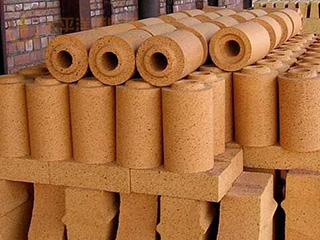The chemical and pharmaceutical industries rely heavily on high-temperature processes to manufacture products. These processes involve the use of equipment that generates significant heat, which can lead to fires and explosions if not properly managed. This is where fireproof materials come into play, as they help to protect the equipment and workers from the hazards of high-temperature processes. In this article, we will explore the role of fireproof materials in the chemical and pharmaceutical industry.
One of the primary uses of fireproof materials in the chemical and pharmaceutical industry is in the construction of furnaces, kilns, and other high-temperature equipment. These structures must be able to withstand the extreme temperatures generated by the processes they are used for, while also providing a safe working environment for employees.
There are several types of fireproof materials used in the construction of these structures, including refractory bricks, castables, and ceramics. Refractory bricks are made from materials such as clay and silica, which are capable of withstanding temperatures of up to 1800 degrees Celsius. Castables are made from a mixture of refractory materials and binding agents, which are poured into molds to create custom shapes and structures. Ceramics are also commonly used in high-temperature applications, as they have excellent thermal conductivity and can withstand temperatures of up to 2400 degrees Celsius.
In addition to the construction of high-temperature equipment, fireproof materials are also used to line the walls of reactors and vessels used in chemical and pharmaceutical processes. These linings are designed to protect the underlying metal from the corrosive effects of the chemicals being processed, while also providing thermal insulation to maintain the desired process temperature.
One of the key challenges in the use of fireproof materials in these applications is the need for materials that are resistant to chemical attack. Chemicals used in these processes can be highly corrosive and can quickly degrade traditional fireproof materials. This has led to the development of new materials that are specifically designed to withstand the harsh chemical environments found in the chemical and pharmaceutical industries.
One such material is silicon carbide, which has excellent resistance to chemical attack and can withstand temperatures of up to 1650 degrees Celsius. Another material that is gaining popularity in these industries is graphite, which has excellent thermal conductivity and can withstand temperatures of up to 3000 degrees Celsius.

In addition to the use of fireproof materials in the construction of equipment and vessels, they are also used to create fire barriers and fireproof coatings. Fire barriers are designed to prevent fires from spreading from one area of a facility to another, while fireproof coatings are applied to walls and surfaces to prevent fires from starting in the first place.
One of the most important aspects of fireproof materials in the chemical and pharmaceutical industry is their ability to provide a safe working environment for employees. Fires and explosions can cause serious injuries or even death, and the use of fireproof materials helps to prevent these incidents from occurring.
The use of fireproof materials in these industries is not just a matter of safety, however. It also plays a critical role in ensuring the reliability and efficiency of the manufacturing process. Equipment failures due to heat damage or chemical attack can lead to costly downtime and lost production, which can have a significant impact on the bottom line.
The use of fireproof materials is also essential for regulatory compliance. Many countries have strict regulations governing the use of high-temperature processes, and the use of fireproof materials is often required to meet these regulations. Failure to comply with these regulations can result in fines, legal action, and damage to a company's reputation.
In conclusion, the use of fireproof materials plays a critical role in the chemical and pharmaceutical industry. These materials are essential for protecting equipment and employees from the hazards of high-temperature processes, while also ensuring the reliability and efficiency of the manufacturing process. As new materials and technologies are developed, we can expect to see further innovation and improvements in the use of fireproof materials in these industries.
One area of innovation is the use of nanotechnology to create new fireproof materials with improved properties. For example, researchers are exploring the use of nanoceramics, which have higher strength and durability than traditional ceramics. Nanoceramics also have a smaller grain size, which improves their thermal conductivity and resistance to thermal shock.
Another area of innovation is the development of new coatings and composites that can be applied to existing structures to improve their fire resistance. For example, researchers are exploring the use of graphene oxide, a material that has excellent fire resistance and can be applied as a coating to walls and other surfaces.
As the demand for fireproof materials in the chemical and pharmaceutical industry continues to grow, we can also expect to see increased investment in research and development. This will lead to the development of new materials with improved properties, as well as new manufacturing processes that make these materials more cost-effective and efficient to produce.
In summary, fireproof materials play a critical role in ensuring the safety, reliability, and efficiency of high-temperature processes in the chemical and pharmaceutical industry. The use of these materials helps to protect equipment and employees from the hazards of heat and chemical attack, while also ensuring compliance with regulatory requirements. As new technologies and materials are developed, we can expect to see further innovation and improvements in the use of fireproof materials in these industries.
Contact: Mgr. Han
Phone: 0086-13589497465
Email: 1255953279@qq.com
Add: Industrial Area of Lingzi Town,Zichuan District,Zibo City, Shandong,China